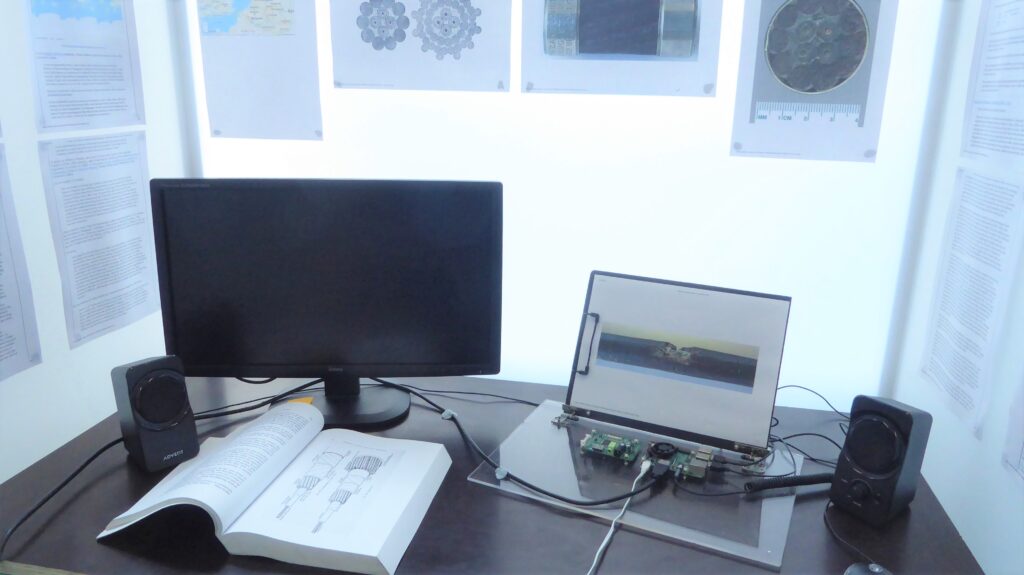
‘1858 DUNWICH-ZANDVOORT CABLE FT. CPT-2’ explores our relationship with the archive in the age of1858 Dunwich-Zandvoort cable ft. GPT-2 explores our relationship with the archive in the age of deep fakes and neural networks. GPT-2 was trained on over 8 million documents and its release restricted due to concerns over the generation of fake news. However it is available for download, this version was downloaded and installed using the Python environment Anaconda and run on a cluster of Raspberry Pi 3B+ boards with the addition of webtext from the website https://atlantic-cable.com/Cables/1858EnglandHolland/index.htm .
The connection with Dunwich is due to my PhD research on the site of Dunwich: Hacking the Lost City: A practice-led investigation into electronic environmental heritage. This specific submarine telegraph cable is chosen due to the drama surrounding its attempted sabotage by a rival submarine cable company sending a member of crew onboard to drive a nail through the cable roughly halfway between Dunwich and Zandvoort. The first sentence of the story is real, after that its all GPT-2, can you tell? deep fakes and neural networks. GPT-2 was trained on over 8 million documents and its release restricted due to concerns over the generation of fake news. However, it is available for download – this version was downloaded and installed using the Python environment Anaconda and run on a cluster of Raspberry Pi 3B+ boards with the addition of text from this website.
The connection with Dunwich comes from Emily’s PhD research on the site of Dunwich: Hacking the Lost City: A practice-led investigation into electronic environmental heritage. This specific submarine telegraph cable was chosen due to the drama surrounding its attempted sabotage by a rival submarine cable company, who sent a member of crew onboard to drive a nail through the cable roughly halfway between Dunwich and Zandvoort. The first sentence of the story is real, after that it’s all GPT-2, can you tell?
Emily Godden is an Artist, Educator and Creative Technologist based in Suffolk teaching BA (Hons) Digital Media Production at Anglia Ruskin University. Emily is the founder of social enterprise Virtually There Studio; an Arts & Digital media studio creating exhibitions, experiences and educational opportunities to improve digital literacy and reconnect with nature.
Instagram: @virtually_there_studio